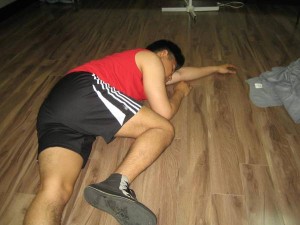Alcoholic is a chronic progressive condition that involves a person uncontrollably drinking too much alcohol, drinking more alcohol in order to obtain the same effect each time or physical dependence of alcohol, continuing the consumption of alcohol despite the problems it is causing or experiencing withdrawal symptoms when you suddenly stop or reduce drinking.
A person with alcoholism may not be able to tell how much alcohol he will drink, how long he will drink or what will result from his drinking. However, it is important to note that even though the person’s consumption may not be as advanced as alcoholism, he may suffer from the same alcohol-related problems. Problems including drinking too much or repeatedly at certain times that may lead to problems in your life even though you are not completely alcohol-dependent.
A major cause of problems related to alcohol consumption is binge drinking. For males, binge drinking involves having 5 or more drinking in one go and for females, it is usually four or more. Binge drinking often results in health and social problems that may be associated with alcoholism. The more you drink alcohol, the more you are at risk.
Problems with alcohol and alcoholism, may allow a person to find it difficult to cut back on alcohol without professional help. A person with alcoholism may also deny having this problem.
Signs and symptoms of alcoholism
- Inability to limit or quit alcohol consumption
- Feeling a strong urge to drink
- Drinking alone or hiding your drinks
- Physical dependence or tolerance to alcohol, allowing you to have more as the condition progresses
- Withdrawal symptoms such as tremors or nausea when you do not drink
- Black outs – remembering past commitments or conversations
- Scheduled drinking – you may feel irritated when the schedule is disturbed by someone or some event
- Irritability near drinking times – usually when you do not have alcohol
- Keeping alcohol at unusual places such as your car or at work
- Gulp drinks and double orders
- Getting drunk to enjoy or feel normal
- Legal problems or social or personal problems such as employment, relationships or finances
- Losing interest in hobbies and other activities you used to enjoy
Bing drinking may result in most of the above symptoms however, you may not feel the urge to drink as compared to a person with alcoholism and you may not experience withdrawal symptoms either. However, you are most likely to find it difficult to quit drinking without any help.
When to seek medical help
Usually a person with alcoholism or problem drinking may not realize that he or she is experiencing any problems, therefore, treatment is not often sought by the sufferer but by the person’s loved ones such as family or friends. If you feel that your loved one is having alcohol-related problems, make sure he or she receives treatment as there are numerous treatment methods to treat the harmful effects of alcoholism.
Even if you do not think you have alcoholism, see your doctor because you are most probably experiencing problems in your life or are concerned about overdrinking. Emotional health care providers such as Alcoholics Anonymous are also helpful support groups that may help you deal with your problems.
Denial is common if you are having drinking problems, but make sure you listen to your friends, family or co-workers if they tell you to see a doctor to examine your drinking habit.
Alternative treatment methods may involve dealing with your stress or keeping you preoccupied such as through yoga, meditation or acupuncture.
Related Articles you May Also Enjoy
- Bronchitis Risk Factors and Complications – Read Here
- First Aid Treatment for Open Wounds – Read Here

